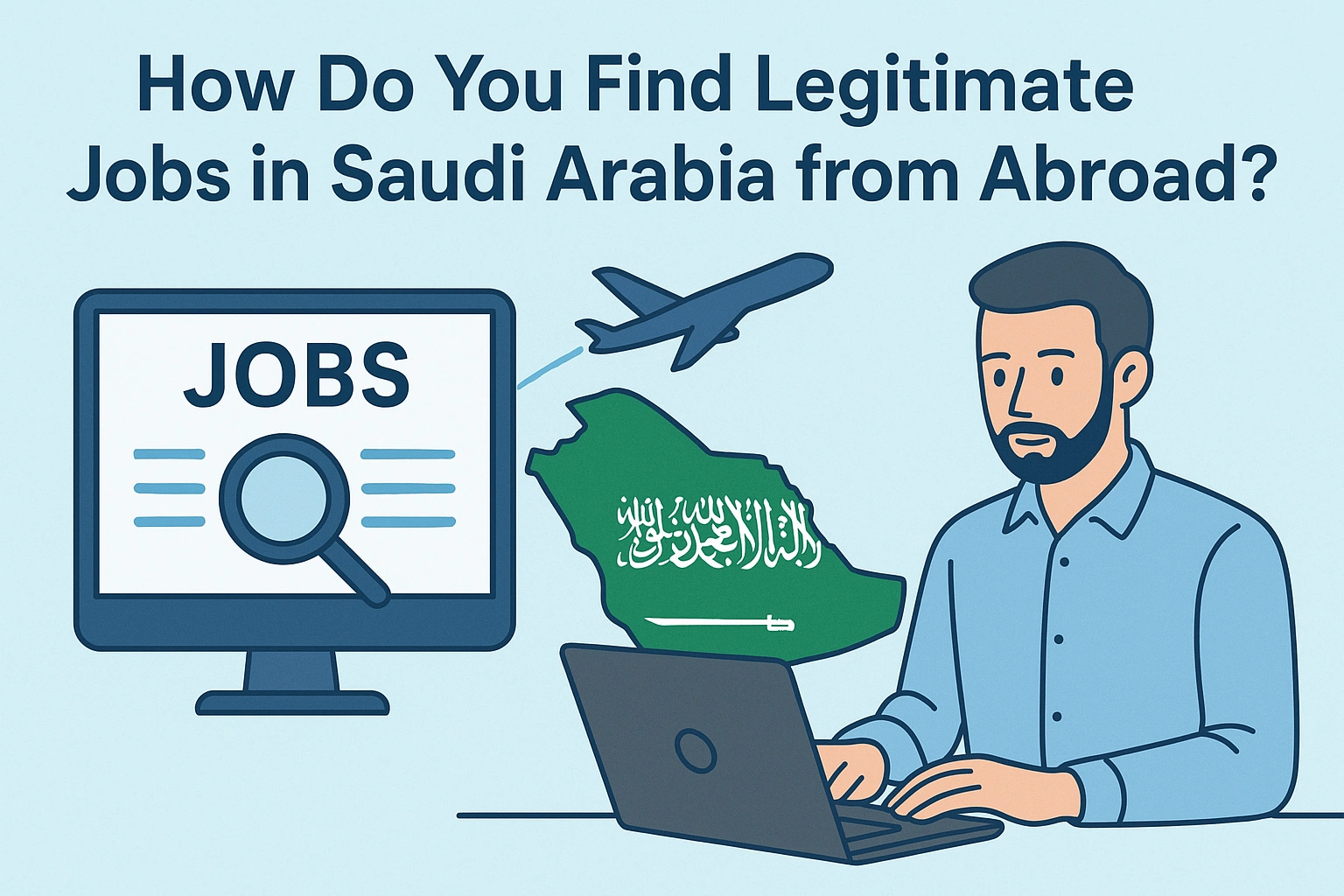
A strong economy, megaprojects and endless opportunities… This market is a dream for foreign professionals. Saudi Arabia is not just a place to work; it is a hub for economic transformation and future opportunities. With the implementation of Vision 2030, opportunities for expatriates continue to expand in key sectors such as technology, engineering, healthcare, and education.
Top Industries Offering Expat Job Opportunities in Saudi Arabia
1. Oil & Gas Sector
Despite Saudi Arabia's move toward economic diversification, the oil and gas sector remains the backbone of the national economy due to its vast oil reserves and large-scale projects. As a result, the Kingdom attracts major global oil companies, including Aramco and SABIC, creating a dynamic work environment with diverse employment opportunities, including:
- Specialized engineering openings in fields such as petroleum and chemical engineering
- Geological vacancies requiring expertise in oil reservoir exploration and assessment
- Project management roles ensuring the efficient and effective execution of major projects
2. Construction & Infrastructure Sector
The Kingdom is undergoing an unprecedented construction boom, driven by mega-projects such as NEOM and Qiddiya, which are reshaping the Kingdom and positioning it among the world's leading destinations. Consequently,These projects create job opportunities such as:
- Positions for experts in architectural engineering
- Project management roles overseeing construction
- Skilled labor positions in various construction trades, including ironwork, carpentry, and electrations
3. Healthcare Sector
Imagine being part of a medical team making a real difference in people's lives. This vision becomes a reality. Furthermore, With the rapid expansion of healthcare services, doctors, nurses, and medical technicians have a unique opportunity to contribute to improving healthcare quality and providing advanced medical services to the community. Both public and private hospitals in the Kingdom seek to attract top medical talent from around the world, offering a supportive and motivating work environment.
4. Information Technology Sector
With the rapid acceleration of digital transformation, many companies are seeking software developers, cybersecurity experts, and network engineers.
5. Education Sector
The quality of education depends on the quality of educators. In fact, a growing demand for qualified teachers in various fields, especially in mathematics, science, and English. These subjects are essential for developing critical thinking, problem-solving, and effective communication skills among students. Schools and universities across the Kingdom are actively seeking experienced and highly skilled teachers who can inspire and motivate students to achieve academic excellence.

How to land those roles
1.Online Job Portals: Websites have literally made it extremely easy to apply to hundreds of jobs in a minute with tools like auto apply and preparing you while it applies to jobs in your specific field tailored to you while you can invest your time into preparing for those interviews or spending time to enhance your skillset making you even more valuable.
2. Job Fairs: Regularly held in major cities such as Riyadh and Jeddah, providing excellent networking opportunities with employers. Examples include:
- Career and Employment Expo: In its 19th edition in 2025, the expo took place at the Riyadh International Convention & Exhibition Center from February 9 to 11, attracting a wide range of companies and educational institutions.
- Virtual Job Fair: "Bab Rizq Jameel" launched its third edition of the virtual job fair, aiming to connect job seekers with training programs leading to employment through innovative technologies such as virtual meetings and instant video interviews.
- Big 5 Construct Saudi & Windows, Doors, and Facades Expo Saudi: Held in Riyadh, these events target specific sectors in the job market.
Types of Work Visas for Expatriates Seeking Employment
1. Saudi Work Visa
The legal gateway for expatriates worldwide to enter the market. This visa is issued exclusively to individuals who have secured official and documented job contracts from accredited companies or institutions in the Kingdom. Requirements include:
- Securing a formal job offer
- issuance via the Ministry of Foreign Affairs through the "Enjaz" platform
- Completing medical examinations at an accredited medical center in the expatriate’s home country
- Employment contract verification by the Ministry of Human Resources and Social Development
- Obtaining a residence permit ("Iqama") from immigration authorities upon arrival
2. Special Residency Visa (Premium Residency)
Unlike the standard work permit, A premium residency designed for investors and entrepreneurs. This grants extensive freedom to conduct business, own property, and obtain long-term residency.
3. Family Visit Visa
Family is a big part of the Saudi culture, therefore allowing the issuance of family visit visas, enabling individuals to visit their relatives residing in the Kingdom. This is not intended for employment but is strictly for family visits. However, some job seekers take advantage of their visit period to explore job opportunities within companies and establish connections, which may lead to securing a legal work contract for employment.
Types of Work Permits
- Basic Work Permit: Granted to workers employed by institutions under official contracts.
- Premium Residency Permit: Designed for investors and business owners, offering benefits such as the freedom to work and move without the need for a sponsor.
- Freelance Work Permit: Allows expatriates to work independently in specific professions, such as technical and consulting fields, without the need for a specific employer.
Sponsorship System
The sponsorship system requires workers to have a sponsor (employer) responsible for visa-related procedures. However, major reforms introduced in 2021 have eased restrictions, allowing:
Changes to the Sponsorship System
In 2021, the Ministry of Human Resources and Social Development introduced major reforms under the "Labor Contractual Relationship Improvement Initiative," including:
- Removal of employer consent for job changes: Expatriates can switch their workplace after their contract ends without the employer's approval.
- Permission to exit and return without approval: Workers can request exit and re-entry visas directly through the “Absher” platform.
- Elimination of sponsor approval for final exit: Expatriates can leave the country without permission after contract completion or termination under agreed conditions.
Work Laws and Regulations
- Working Hours: The Ministry of Human Resources sets the maximum working hours at 48 hours per week in the private sector, with reduced hours during Ramadan.
- Minimum Wage: Varies by job and sector, with a minimum wage of SAR 4,000 for some professions.
- Annual Leave: Employees are entitled to a minimum of 21 paid annual leave days, which may increase depending on company policy.
Frequently Asked Questions
Best Arrival Tips
- Focus on expat-friendly sectors unaffected by Saudization, such as technology, engineering, and healthcare.
- Verify job contracts and visas to avoid fraud.
- Learn Arabic to facilitate communication with colleagues and employers.
- Follow local residency and labor laws to avoid fines or deportation.
Work Visas and Residency Permits
- Work Visa: Issued before entering arriving based on a job contract.
- Residency Permit (Iqama): Issued after arrival, allowing expatriates to stay and work legally.
Challenges?
- Saudization policies: Some roles are reserved exclusively for nationals' citizens, limiting expatriate opportunities.
- Bureaucratic procedures: Obtaining visas and work permits can take time.
- Cultural adaptation: Some expatriates may struggle to adjust to customs and traditions.
Professions are restricted to citizens only
- Receptionists in hotels and hospitals
- Sales representatives
- Human resources professionals
- Cashiers
- Administrative roles such as recruitment managers and HR directors
How can I check the validity of my residency permit and work permit?
- Absher
- Muqeem
- Ministry of Human Resources and Social Development
By following this guide and complying with legal procedures, expats can ensure a smooth and successful work experience. You can also become part of this progress and contribute to building a bright future for Yourself and the kingdom.








 2025-11-28
2025-11-28
 2025-11-24
2025-11-24
 2025-11-18
2025-11-18
 2025-11-11
2025-11-11
 2025-11-10
2025-11-10